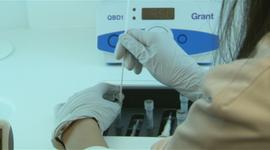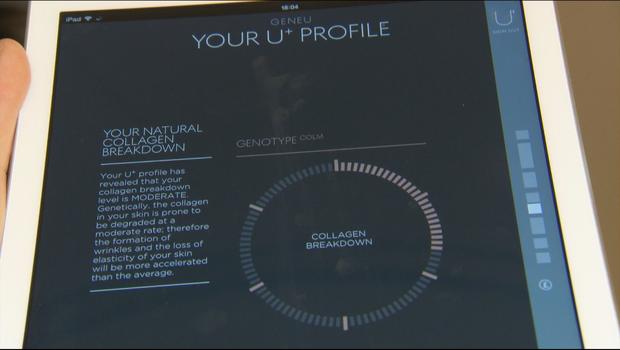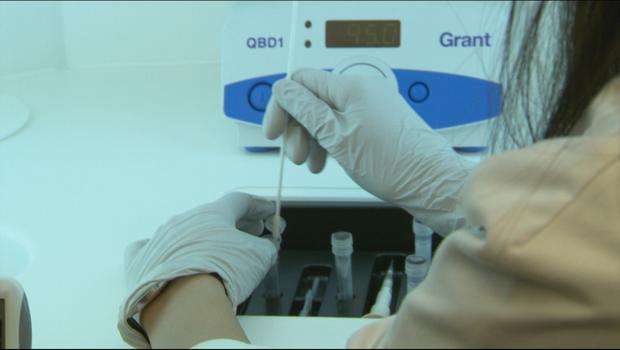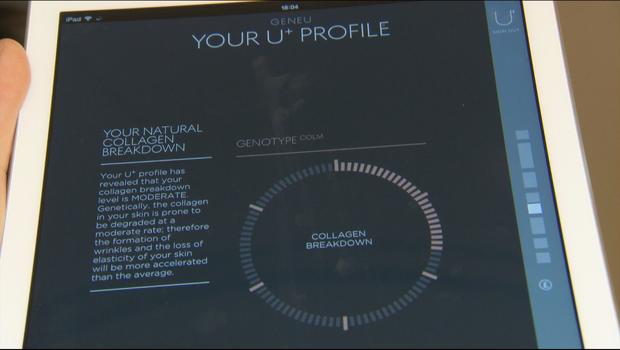Can a DNA-tuned serum keep you beautiful?
Professor Christofer Toumazou is a scientist whose expertise runs anything but skin deep, which is ironic, given that he's recently entered an industry that prefers to be taken at face value.
Toumazou's already a proven inventor. He developed an ear implant that has helped thousands of children to hear, as well as an artificial pancreas for diabetics, reports CBS News correspondent Charlie D'Agata.
His latest venture GeneU, however, is a beauty store with a difference. Toumazou said his store is located on London's Bond Street because the street "represents luxury."
By studying DNA, Toumazou said they're able to look at the genes that regulate how quickly a person breaks down the skin proteins collagen, and an individual's level of antioxidant protection.
After the DNA sample is taken inside what looks like a teleporter, the cells are isolated. The cell solution is then squeezed directly onto Toumazou's patented microchip, and the client is given a lifestyle assessment questionnaire to fill out. They ask things like age and whether the person uses moisturizer.

That chip then goes into a processor, and the results come out 30 minutes later.
The test purportedly shows the exact levels of the person's collagen production and antioxidants. From there, a bespoke serum -- one of 18 different types on offer -- is made to suit the person's skin according to their unique DNA makeup. One serum is for antioxidants and the other is for collagen.
It doesn't come cheap, costing roughly $1,000 for the test and a two-week supply.
GeneU said double-blind clinical trials suggested the treatment reduced fine lines and wrinkles by up to 30 percent in 12 weeks. The data will be published in the next few months.

Manhattan-based dermatologist Dr. Elizabeth Hale is looking forward to seeing the results.
"Yes, we do have technology now that can detect small differences in DNA, but they're taking a big leap because I think they're trying to sell their serums under that assumption that these small differences are clinically significant," Hale said. "I think it may represent the future, I just don't think we're there at this point yet."
But one believer is the company's creative director, Nick Rhodes -- the keyboardist from Duran Duran.
The business idea came out of a chance meeting with Toumazou on a private jet.
"We chatted away from there and inevitably the conversation moved around to beauty, which is where we sort of crossed paths," Rhodes said.
Rhodes helped convince Toumazou to take his DNA microchip idea and apply it to the beauty industry.
But Rhodes doesn't think he's just helping rich people stay pretty.
"Obviously, the price point is higher than any of us would like, but it's first-generation technology," he said.
Rhodes and Toumazou said it's the 30-minute timeframe that's the game changer. Similar DNA tests offered elsewhere can take weeks.
If it proves a success in London, they're planning to get under the skin of the U.S. beauty industry soon.
Watch the video to see Charlie D'Agata go through the GeneU experience.

